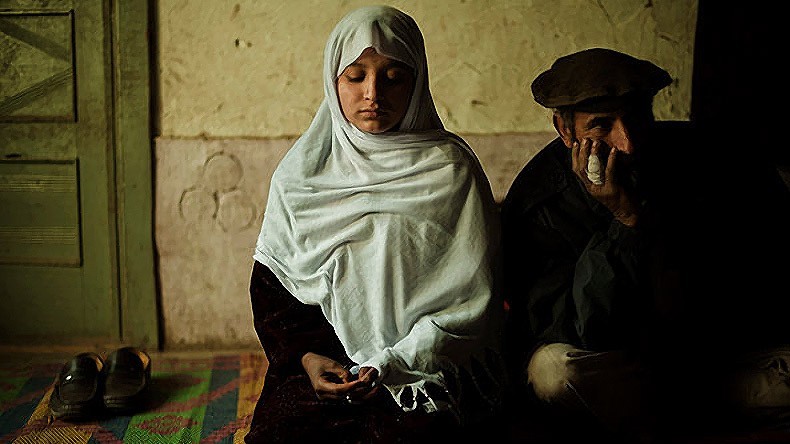
Disregarding problem of early marriages in Azerbaijan promotes paedophilia, expert says
The disregard of the problem of early marriages in Azerbaijan can be considered as promotion of paedophilia and undermining the health of the nation because newly married couples do not undergo medical examinations recommended by the state, Eldar Zeynalov, the head of Human Rights Centre of Azerbaijan, told Echo.az.
“Everything depends on the mode of the religion and family customs. The more aggressive the religion, the more human rights violations. Take Nardaran for example, it is in Baku outskirts, still some of the traditions existing there cannot even be found in villages. Teen marriages can be met there quite often. This is the matter of concern of the Ministry of Internal Affairs of Azerbaijan rather than the executive authorities or the municipality,” Zeynalov pointed out.
He notes that from legislative point of view, marriages with teenagers are regarded as paedophilia punished with imprisonment. The local executives cannot control the issue as wedding ceremonies take place at mosque. Therefore, the clerics must carry the responsibility, yet they register the marriages ignoring the state laws.
According to the expert, the religious marriages are a way to avoid the obligatory medical examination before marriage as stated by the law. “Naturally, those having infectious diseases will avoid secular marriages, and their disease will accordingly spread. It is more important to care about the health of the nation than counting mosques. If the clerics are charged with the responsibility, we can competently combine the law with religion,” Zeynalov says. The expert also added that the officials are increasingly reluctant to touch the issues related to religion.
Novella Jafarova, another rights defender who is a member of Joint Working Group on Human Rights, told the website that Azerbaijani law prohibits child marriages but a mechanism of the practical implementation of the document has not yet been worked out. She said no parent has been held responsible so far, and all of the norms remain on paper. She added that a lot of children born to mothers under 17 are not registered.
“In the regions, girls do not go to school at all; they all get ready for marriage. It is not normal. Parents sometimes rush their girls into marriage because of financial problems. The most important thing is to hold responsible to those guilty. Once the parents are fined some four thousand manats or sent to prison, they will immediately start to fear. Otherwise, no one deals with the issue. There is a law but it is no help,” Novella Jafarova said. In addition, she said early marriages result in girls repudiating their babies after their birth, and many of those children find themselves in the street because of not being registered.
According to the State Statistical Committee, the number of children born to mothers from 15 to 17 years has grown by 15.4 percent in Azerbaijan. From 2,855 children in 2013 their number grew to 3,296 in 2014, Echo.az points out.
At the beginning of 2015, the UN Committee on the Elimination of Discrimination against Women considered the fifth periodic report of Azerbaijan on its implementation of the provisions of the Convention on the Elimination of All Forms of Discrimination against Women. The issue of high and prevalent rate of early marriages in Azerbaijan was raised. It was pointed out hat those marriages cause drop-out of school, particularly among girls in the ninth to eleventh grades. An expert noted that the troubling phenomenon of girls as young as 12 and 13 years leaving school to get married continued, despite the amendment to the Criminal Code. A delegate from Azerbaijan responded that the State had no information of any marriages involving children as young as 12 or 13. The experts also said that unregistered marriages, which were usually religious marriages known as Kabin, continued to be a serious problem. The issue was particularly grave for children of such marriages who were considered ‘illegitimate’ and could not be registered with the State.
Related news
Newsfeed
Videos






























